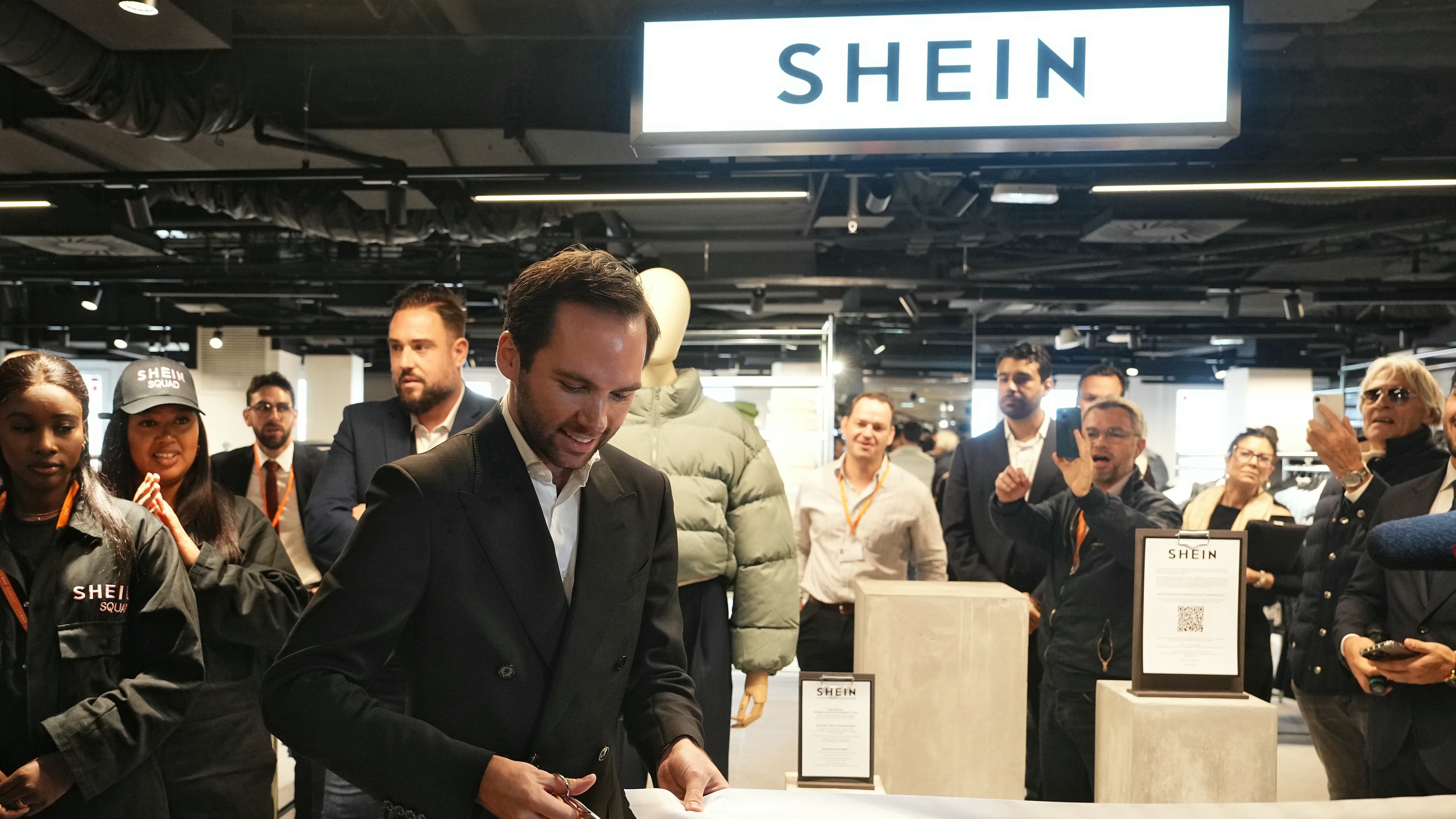France suspends access to Shein's online platform after controversy over child-like sex dolls

PARIS (AP) — France’s government said Wednesday it is suspending access to online retail giant Shein until the company proves that its content conforms with French law.
The decision, announced in a statement by the Finance Ministry, came after controversy over child-like sex dolls sold on Shein’s site. It also came just after Shein opened its first permanent store in the world, in a Paris department store.
THIS IS A BREAKING NEWS UPDATE. AP’s earlier story follows below.
PARIS (AP) —
Crowds of shoppers — and protesters — turned out Wednesday for the opening of fast-fashion giant Shein's first permanent store in Paris inside one of the city's most iconic department stores.
The launch of Shein, which has long drawn criticism over its poor green credentials and labor practices, in the heart of France’s fashion capital has triggered a backlash from environmental groups, Paris City Hall, and France’s ready-to-wear industry.
The retailer is also under fire after French authorities last week found sex dolls with childlike features listed on the retailer’s website. The case has been referred to prosecutors, and the government has warned that the global e-commerce platform could be barred from the French market if such content reappears.
In response, Shein said it has banned all sex-doll products, and temporarily removed its adult products category for review. The company has also launched an investigation to determine how the listings bypassed its screening measures.
An online petition opposing the Paris opening has surpassed 120,000 signatures, and child-protection and environmental groups have condemned Shein. On Wednesday morning several dozen protesters camped outside the BHV department store, and a small group of protesters waving anti-Shein signs briefly disrupted the opening ceremony before they were escorted out by security.
Large crowds of shoppers turned up undeterred.
Ticia Ones, a regular Shein online customer living in Paris, said the main reason she visited the store was the opportunity to see items in person before buying.
“We can see what we order, touch the items, it's a good thing,” she said, adding that the brand's low prices were a strong draw despite the controversy. “I'm not going to comment on the quality, but price is definitely appealing.”
The Société des Grands Magasins (SGM), which owns the BHV Marais department store in downtown Paris, called the sale of the sex dolls unacceptable, but praised Shein for its swift response to defuse the controversy.
The BHV has been going through financial struggles in recent years and the SGM believes the arrival of Shein will help revive business — even as some brands have chosen to leave the store in protest.
“We are proud to have a partner who has spoken out firmly," said Karl-Stéphane Cottendin, the chief operating officer of SGM. "We are very happy to be opening the boutique.”
Founded in China in 2012 and now based in Singapore, Shein has risen rapidly to become a global fast-fashion giant. Selling mostly Chinese-made clothes and products at bargain prices, the retailer has drawn criticism over allegations that its supply chains may be tainted by forced labor, including from China’s far-west Xinjiang province, where rights groups say serious human rights abuses were committed by Beijing against members of the ethnic Uyghur group and other Muslim minorities.
Cottendin dismissed those concerns and praised Shein for doing a “tremendous job” to improve its practices.
“Today, it’s a brand that produces under much more legitimate conditions,” he said. "We ensured that the entire production chain, from manufacturing to delivery, complies strictly with French and European regulations and standards.”
Environmental impact
Fast fashion, characterized by a constant turnover of collections and very low prices, has flooded European markets with low-quality items, driving environmental, social, and economic costs. The United Nations has warned that the textile industry alone is responsible for nearly 10% of global greenhouse gas emissions and contributes to water depletion.
France is now moving to curb the growing influence of companies based in Southeast Asian countries such as Shein, Temu, or AliExpress. A draft law targets fast fashion with measures such as consumer awareness campaigns, advertising bans, taxes on small imported parcels, and stricter waste management rules. The Senate adopted the proposal earlier this year, and the government has notified the European Commission ahead of a joint committee meeting to finalize the text.
“It’s a black day for our industry,” Thibaut Ledunois, director of entrepreneurship and innovation at the French federation of women’s ready-to-wear, told The Associated Press. “Shein is developing a beautiful showcase in our country, justifying all the bad, and sad and horrible business that they develop all around the world.”
